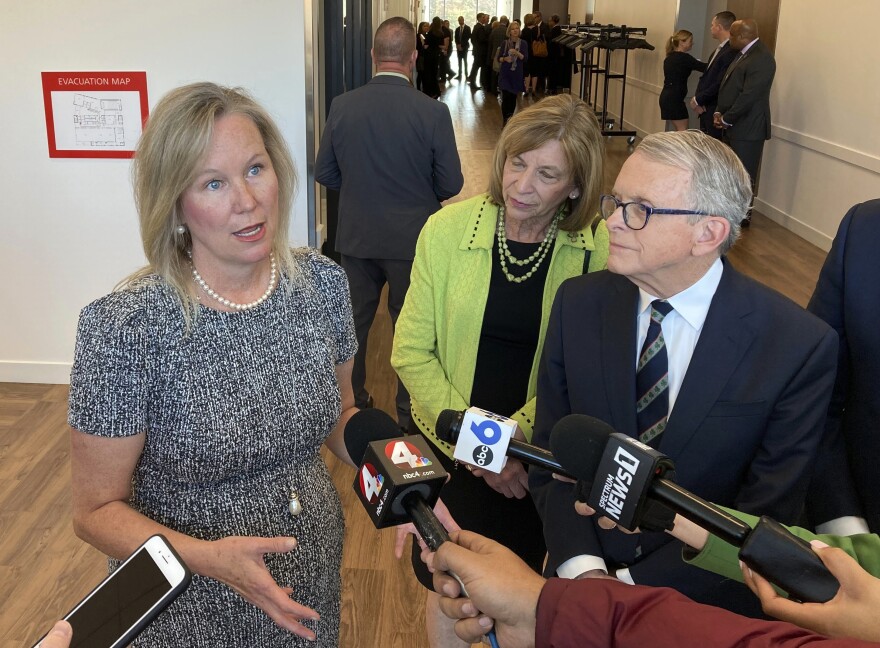Intel is putting $100 million toward educating its potential future workforce.
The company and the National Science Foundation are committing a combined $150 million toward researching, creating and implementing training programs to prepare the state and national workforce for careers in semi-conductor chip manufacturing.
Of the $100 million Intel is putting forth, $50 million will go to Ohio’s higher education institutions to establish education programs within the state.
“Our plan includes exploration of STEM development programs at the local and the regional and the national level so that we can make sure that we are filling the pipeline that we need with education. And this will also include a manufacturing technician certification effort,” said Intel's executive Vice President Christy Pambianchi at the announcement Thursday.
Pambianchi and other leadership from Intel made the announcement Thursday at Columbus State Community College with Gov. Mike DeWine and Lt. Gov. Jon Husted.
The funds from the National Science Foundation will create nationwide programs to support advanced research in the design and manufacturing of chips and the design and implementation of education programs in two-year and four-year colleges.
To attract Intel to Ohio, the state is providing about $2 billion in incentives, including tax breaks, grants and infrastructure investments.
In addition to providing STEM career training that could help staff the $20 billion plant in New Albany with 3,000 employees, company representatives said the program will help bring more chip manufacturing to the United States.
“We believe that investing in education is necessary to ensure that we have the right talent here to help the United States regain leadership in semi-conductor manufacturing,” Pambianchi said.
The educational programs will “remove institutional barriers” while creating the Science, Technology, Engineering and Manufacturing programs with an eye on chip research and manufacturing.
There will be varying levels of programs to match the varying levels of skills needed to work in chip manufacturing, from certificates, associate degrees and bachelor’s degrees, to higher-level degrees.
Husted said the programs will be designed to reach students who aren’t necessarily “traditional” and who may not have considered a career in the STEM field in the past.
David Harrison, president of Columbus State Community College, said community colleges are perfectly positioned to create these types of programs.
“These are our jobs, these are community college jobs. And Intel has been clear about that from the beginning. Highly skilled, manufacturing technician roles will be the lifeblood of this work,” Harrison said. “We’re purpose-built for this moment.”
The programs should lead to new ways of engaging students from all backgrounds, Harrison said.
Research to develop new chip technologies will also be a focus of the programs.
Keyvan Esfarjani, Intel’s senior vice president of manufacturing, supply chain and operations, said the project in New Albany is on track, even “a little bit ahead of schedule.”
“Things are looking good so far,” Esfarjani said.
Chip production is the “heart and brains,” and the “backbone” of the data-focused digital economy, and essential to the future, Esfarjani said.
These education programs will ensure the country has the workforce to meet the manufacturing needs in the U.S., to shore up the global supply chain, and ensure the U.S. has access.




